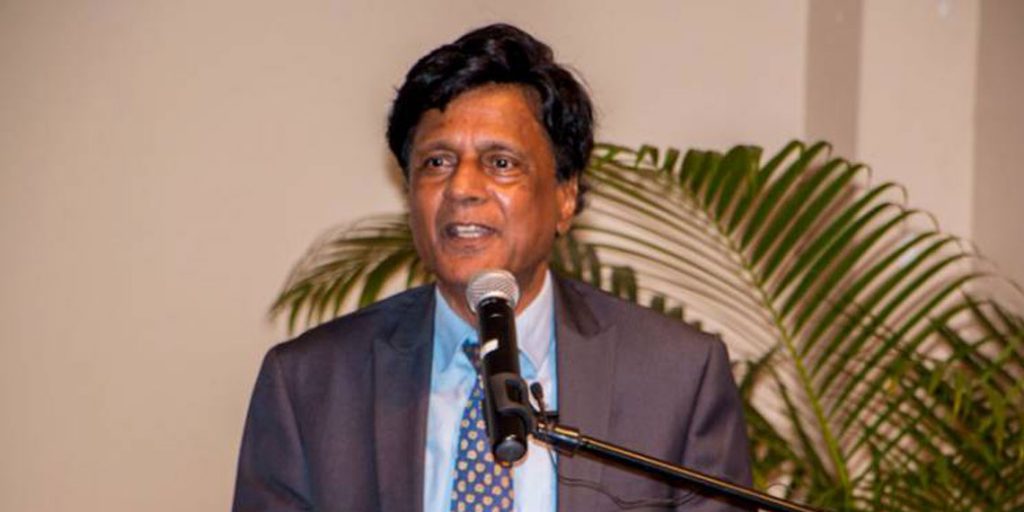ROAR of Ravi Dev
In our 1990, paper, “For a New Political Culture”, we introduced the notion of the “Ethnic Security Dilemmas” (ECD’s) as structuring the political behaviour of Guyana’s two major ethnic groups, Indian and African Guyanese. While there would always be individuals who act on racist motives, it was these dilemmas rather than hatred that created the heightened emotions during the “democratic” elections period when control of the state is at stake.
Stated simply, the political African Security Dilemma was that even though they had literally slaved for the Europeans to create Guyana, because of the Indian- Guyanese superior numbers, in democratic majoritarian elections, they would never be in able to occupy the Executive to “govern” Guyana. For Indian Guyanese, their dilemma was that even if they were to occupy the Executive, their ability to govern would always be tenuous because the power centres of the state – the Police, Army and Bureaucracy (including institutions like GECOM) were all controlled by African Guyanese political rivals. Indians would have “authority” but not “power” and faced an existential threat to their well-being.
As has been observed in game theory, rational actions by individuals can produce irrational outcomes in many contexts. And in line with this, most African Guyanese – with the notable exception of those that joined the WPA of Walter Rodney – rationally went along with Burnham and Hoyte rigging elections between 1968 and 1985. They were impelled, we proposed, by the fear of being “swamped and subordinated” by Indian Guyanese and denied their “birthright”. The “free and fair” elections of 1992 and its aftermath proved our hypothesis when the fears of African Guyanese were once again activated and were violently acted out.
But twenty years later, the demographic premises that undergirded the ESD’s had undergone a seismic shift: Indian-Guyanese, as of the last census of 2012, had dropped to 39.8% of the population as opposed to 51.9% in 1980. African Guyanese were 29.3% in 2012 having slightly fallen from the 1980 30.8%. Both Mixed and Amerindians had almost doubled to 19.9 and 10.5 respectively.
The political African-Guyanese Security Dilemma, therefore had been resolved: with all ethnic groups now being minorities, African-Guyanese or Indian-Guyanese could now win elections if they could appeal to voters from “across the divide” or from the Mixed and Amerindian blocks. The Indian Ethnic Security Dilemma, however, still remained, since the Bureaucracy, Police and Army were all still dominated by the PNC’s constituency. I had pointed this out to three interlocutors – Freddy Kissoon, Lincoln Lewis and Eric Phillips – during 2009-2010, when I objected to their categorization of the PPP as an “elected dictatorship” that could not be removed through the ballot box. They accused me of advising African Guyanese to become lambs to be slaughtered if they forgo street protests that could become violent.
The elections of 2011, of course, proved my point, when the AFC and PNC/APNU combined to control the National Assembly, and in 2015 coalesced to capture the Government. At that time, I pointed out that Guyana now had the opportunity to transition into a more “normal” politics, which is the politics of “in and out” (alternating governments based on their performances) rather than the old politics of “over and under” – one ethnic group dominating the other. The latter scenario was now possible since rationally, each of the major parties would need to have policies in place to attract voters beyond their ethnic constituencies.
Mr. Granger, however, had a different idea. He completely alienated Indian-Guyanese voters with his appointments to Ministries, Boards and especially his decision to unilaterally fire 7000 mostly Indian Guyanese sugar workers – against the recommendations of his own COI. He probably felt that by wooing the Amerindian vote combined with the Mixed group that generally cleaved to his traditional African-Guyanese constituency, he could alienate the Indian demographic.
The 2020 elections, then is really a test of democratic politics in this new Guyana with no African Security Dilemma, but with the Indian Security Dilemma firmly intact. Granger has failed the test with his transparent attempt to rig the elections through his minions in GECOM. In line with Machiavelli’s exhortation, Granger appears willing to forego democratic legitimacy for rule by force. The Bureaucracy, including GECOM, the Police and the Army have signal they will support him.
He can also count, as we have seen from the harassment of the foreign observers, the media and PPP supporters, on the disruptive force of the Georgetown lumpen elements.
